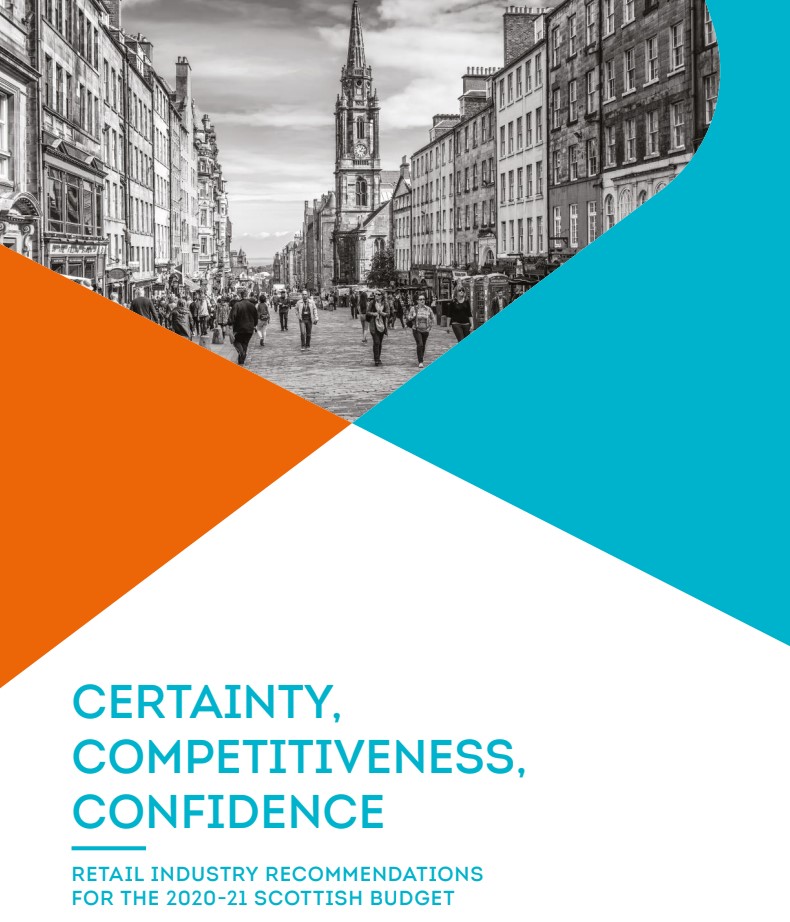Scottish Budget must deliver certainty, competitiveness and confidence says retail consortium
Ahead of this week’s Scottish Budget, the Scottish Retail Consortium (SRC) has called for business taxes to be reduced to boost the retail industry.

SRC's Budget submission
Retail is Scotland’s largest private-sector employer, providing a quarter of a million jobs. However, it is an industry in transition and recent data has shown flatlining retail sales, declining footfall, fewer shops, and a 9% drop in retail jobs on Scotland’s high streets.
The consortium has said that injecting greater certainty into fiscal plans, and decisive actions to reduce business taxes and boost consider spending should be at the heart of the Scottish budget.
The SRC sent its budget submission titled Certainty, Competitiveness, Confidence earlier this week to finance secretary Derek Mackay MSP. It said retailers are reinventing themselves for the future in the face of profound changes in shopping habits, weak demand and spiralling costs.
The submission from the SRC comes ahead of the expected publication later this year of the devolved administration’s tax and spending plans for 2020-21. The 12-page paper covers business rates, a workplace parking levy, new environmental charges, income tax, council tax, skills, town centres, and regulation.
The SRC is specifically recommending the injection of certainty into fiscal decisions through a two-year Budget Accord with opposition MSPs and the restoration of the level playing field with England on the large business rates supplement.
It has also suggested that there should be a timetabled plan to reduce the headline business rate, alongside a specific retail strategy co-produced with the industry, as well as no increase to income tax.
Director of the Scottish Retail Consortium, David Lonsdale, said: “Retail is in the midst of an unprecedented period of transition. These are unsettling times with conditions now the toughest in a decade. The only fixed point in a world of flux for retail seems to be rising costs, which are increasingly difficult to absorb without passing on to shoppers.”
He added: “However, with the right support in place, the industry could do better at re-inventing itself for the future. We are therefore keen to progress a retail strategy with Ministers, which will become even more important with further devolution on the cards following Brexit. It is abundantly clear that there is more than enough political and economic uncertainty around at the moment. A multi-year Budget Accord with Opposition MSPs could provide a more strategic and less piecemeal approach to devolved policy making.
“Positive headway is being made towards Scotland having the most competitive business rates regime in the UK, however, that goal has yet to be achieved and rates are now at a 20-year high. That means finally scrapping the Scotland-only rates surcharge on medium-sized and larger premises, as advocated by Barclay, and which increasingly sticks out like a sore thumb. With retail under pressure, the Budget is an opportunity for Ministers and MSPs to take tangible steps to help retailers as they seek to reinvent themselves for the future. We hope they seize the moment.”










